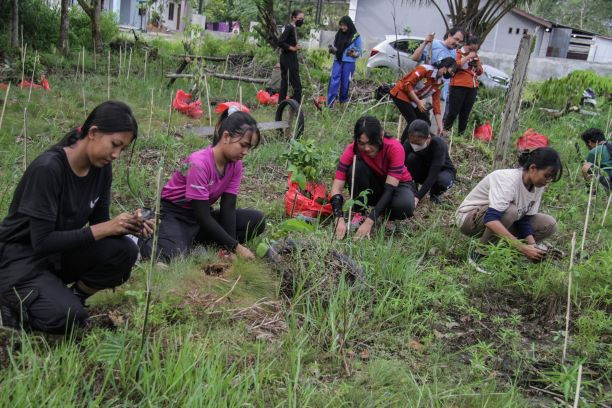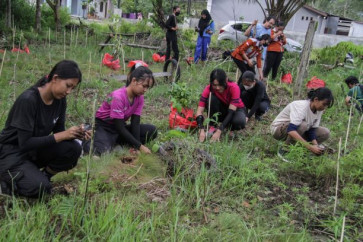Popular Reads
Top Results
Can't find what you're looking for?
View all search resultsPopular Reads
Top Results
Can't find what you're looking for?
View all search resultsHealing our planet is now restoration, not just conservation
The rate of deforestation in Indonesia remains alarmingly high, with an estimated loss of 450,000 hectares each year over the past two decades
Change text size
Gift Premium Articles
to Anyone
A
s the world leaders gather in Baku for the Conference of the Parties to the United Nations Framework Convention on Climate Change (COP29) climate conference, the message is clear: Sustainability, currently a rallying banner to save and protect our home planet is no longer sufficient, we must shift toward restoring what we have degraded.
For decades, we have consumed relentlessly, driven by a pursuit of wealth and convenience, leaving a trail of devastated ecosystems, dwindling forests, extinct and near-extinct species and depleted natural resources.
We have reached a point where sustainability alone is insufficient as we have too little left to conserve in comparison with what we used to have when the concept was first formally launched in 1987 by the United Nations Brundtland Commission.
The only way forward is clear: Protect what is left and restore what has been degraded. We must focus on proactive restoration efforts that heal our damaged ecosystems while safeguarding the remaining intact habitats from further exploitation. This is a challenge that will define our generation.
Let us look in our own “backyard” and see what we can do better as proud Indonesians. Indonesia is home to the largest peatland areas in the world covering approximately 24.7 million hectares (Environment and Forestry Ministry, 2022), mainly in Sumatra, Kalimantan and Papua. Unfortunately around half of this land (ASEAN Haze Portal, 2021) has been degraded by deforestation, land conversion and unsustainable practices.
The rate of deforestation in Indonesia remains alarmingly high, with an estimated loss of 450,000 ha each year over the past two decades. Peatland fires have also significantly contributed to carbon emissions, with the devastating 2015 fires alone emitting 1.62 billion tonnes of carbon dioxide.
Peatlands are unique ecosystems that develop in swamp areas and provide critical habitats for our diverse flora and fauna. They sustain Indonesia’s vast biodiversity and play a critical role in regulating our climate. They act like sponges, removing carbon from the atmosphere, and holding immense amounts in the ground, which is crucial to combating global warming.


















